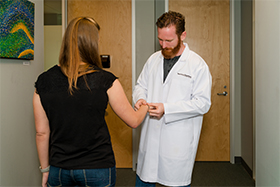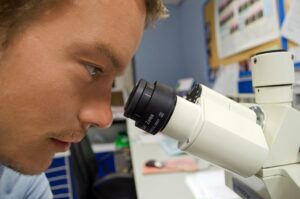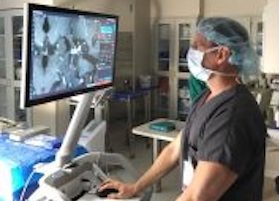Dr. Robert Izor of Neurology Solutions Movement Disorders Center joined Austin’s KXAN News Studio 512 last week to talk about advancements in Medtronic deep brain stimulation (DBS) therapy, a surgical treatment for patients with Parkinson’s disease (PD) and disorders such as dystonia and essential tremor. In 2016, the Food & Drug Administration (FDA) approved Medtronic DBS therapy for use in people with early Parkinson’s disease—at least four-years duration—with recent onset of motor complications not adequately controlled with medication.
DBS-device manufacturer Medtronic is at the forefront of new, more precise programming technology allowing the DBS current field to stimulate deeper areas of the brain and alleviate stimulation-induced symptoms. Medtronic named Neurology Solutions the fourth-largest private DBS implant center in the country and the largest such center managing DBS patients in Texas.










